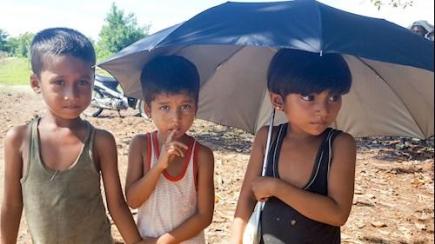A Manchester charity has launched an emergency appeal for the Rohingya Muslims in Myanmar after the latest escalation of violence erupted in August.
The Muslim faith-based charity, Human Appeal, which was founded in 1991, reported that in the last two weeks more than 120,000 Rohingya Muslims have fled the country to neighbouring Bangladesh, whilst thousands more are still trapped in conflict zones in Western Myanmar.
Of the 48.7million who live in Myanmar, the population is predominantly Buddhist with only 1.1 million Rohingya Muslims.
Neither the Bangladeshi nor Myanmar government will grant the Rohingyas citizenship making them stateless.
This means that they don’t have access to freedom of movement, state education or voting rights and have long been discriminated against by the Burmese Government.
With thousands of people arriving every day at camps on the Bangladeshi border resources such as food, water and shelter are already in very short supply.
Mancunian Matters spoke to CEO of the charity Othman Moqbel to ask him about Human Appeal’s work in Myanmar and the situation on the ground.
The charity has been doing work in Myanmar and the Rakhine State since 2012. Before the escalation of the conflict this year the charity had been working in the Rakhine State doing development projects such as working on health care facilities and building a school.
MM asked Othman what the charity had been doing since the escalation of the conflict in August following the NGOs emergency appeal which was launched three weeks ago.
He said: “Our team arrived yesterday to Sittwe (the capital of the Rakhine State) where they are already doing work and waiting to reach other affected areas in the Rakhine State as well.
“Since the conflict started again it has been difficult to reach some areas and we have to get permission for food distribution in the area.”
The charity has managed to gain permission from some local authorities and last week began to distribute aid.
Othman said that food and WASH (Water, Sanitation and Hygiene) facilities are the two priorities during any crisis.
“After that follows shelter, and emergency health treatment if local authorities allow, because people there are really suffering,” he added.
Yet the major problem for NGOs if gaining access to the affected areas in the Rakhine State and many aid agencies are still struggling to deliver aid.
When MM asked Othman exactly how many people have already fled Myanmar and were still trapped inside he said: “There are 350,000 refugees that fled the country to Bangladesh, internally in Myanmar we have no real statistics but I expect there are hundreds of thousands. If the number of refugees in Bangladesh is 350,000, IDPs (Internally Displaced People) will be more.”
The conflict between the Rohingya Muslims and the Burmese Government has been going on for many years.

DESPERATE: The conflict has been going on for many years.
Othman thinks that the conflict, which has recently escalated needs a long-term solution.
“Since 1962, hundreds and thousands of people have left the country and they haven’t come back,” he explained.
“This is a continuous problem that has been going on for years. It needs a political solution and we hope that our PM and other western countries will work together with the UN to try find a solution.”
The charity has been astounded by the response to its appeal and hopes to reach half a million pounds by the end of the week.
Othman said: “The response of the community is very good; in Manchester in particular and throughout the whole of the UK.”
Images courtesy of Human Appeal, with thanks.



